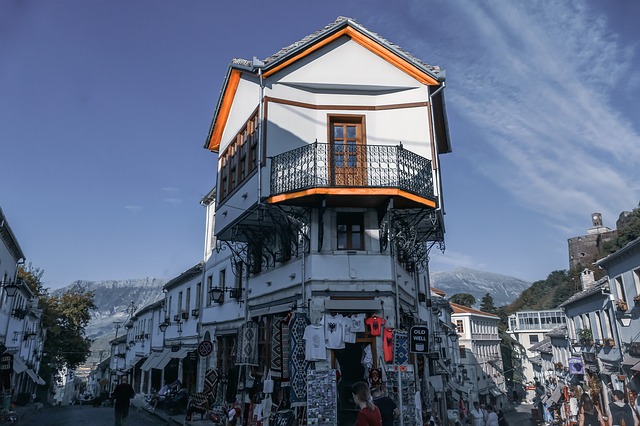February 7, 2019
Review of A Girl in Exile
Albanian literature is not something I’ve been exposed to a lot. Indeed, this review of A Girl in Exile, by Ismail Kadare, is not only the first opportunity for me to review a novel of Albanian literature, but also the first time I even read one.
The story seems deceptively simple. According to the book description:
During the bureaucratic machinery of Albania’s 1945–1991 dictatorship, playwright Rudian Stefa is called in for questioning by the Party Committee. A girl—Linda B.—has been found dead, with a signed copy of his latest book in her possession. He soon learns that Linda’s family, considered suspect, was exiled to a small town far from the capital. Under the influence of a paranoid regime, Rudian finds himself swept along on a surreal quest to discover what really happened to Linda B.
At first glance, A Girl in Exile seems like a mystery thriller with political aspects. Nothing could be further from the truth.

Review of A Girl in Exile: Genre, Plot, Narrative
As I implied already, the description of the book might give the impression this is a mystery or a political thriller. It’s not. Such elements do float around the less-than-200 pages of the novel, but they are entirely secondary to what’s really going on.
In a sense, Kadare’s A Girl in Exile is a story about… a girl. More specifically, about any Albanian girl that grew up in the isolated, one-party Albania of the period. Ismail Kadare makes it explicit, by dedicating the novel to the Albanian women who lived in internal exile.
But more elaborately, A Girl in Exile is about a conflict of a person between the “real” reality and the one they see or would like to see. If you detect psychological elements in there, you’d be spot on. The narrative does refer a lot to paranoia, both literally and figuratively.
From Paranoia to Magical Realism
Life under an authoritarian, surveillance-happy regime favors paranoia – sometimes justified, sometimes not – and literal paranoia is all too easy to expect under such circumstances.
Kadare, however, takes the motif of paranoia and transforms it into something remarkable, which I would liken to South-American magical realism.
Add to this the self-referential nature of the text, with its recourse to theatrical plays – highly reminiscent of Hamlet, for some reason – and ancient Greek myths of the underworld, and you have a fascinating literary product that is more than a sum of its parts.
Review of A Girl in Exile: Characters
Is A Girl in Exile literary fiction? No, it’s not exactly that, which is a bit of a pity. What keeps the novel from realizing its full potential is the lack of sophistication in its characters.
To be clear, they are well written and realistic, with occasional flashes of depth and introspection. But there is just something lacking in their personality, motivation, and overall aura that keeps me from declaring this as a truly literary-fiction novel.
Partly, it’s because of the relatively short length of the novel, not allowing a full exploration of its characters. Another possible explanation is the subject matter. It occasionally becomes too abstract for a sustained character exploration.
Is this a deal-breaker? Not even close. A Girl in Exile remains an intriguing novel, offering its readers a fascinating look into a mysterious society. It’s more about what it could’ve been rather than what it is.
Review of A Girl in Exile: General Impression
In short, I really enjoyed A Girl in Exile. In terms of narrative structure it comes off more as a lengthy novella, as the reader basically enters the world of the novel as if in the middle of everything.
Of course, this also underlines the peculiar – and even symbolic – nature of the novel. In a way, this kind of beginning-less plot appears as another nudge-nudge, wink-wink in regard to the dreamlike ontology of the narrative.
To be clear, there is an identifiable plot. This isn’t like those self-righteous novels that speak a lot and say nothing. There are distinct characters, a narrative problem, and a narrative journey culminating in a conclusion.
At the same time, however, to get the best of it, the reader needs to be open-minded. Much of what occurs is symbolic, abstract, and allegorical. There is a play within the “play” that is the story.
There is also a strong reference to the ancient Greek myth of Orpheus, which relates to A Girl in Exile in various ways, such as in terms of representation, artistic creation, and human nature.
Pair all that with a fascinating look into authoritarian Albania of the 1980s, and what you have is a great evening read. Suitable for all? Maybe not. But great for connoisseurs.
Comments are closed for posts older than 90 days